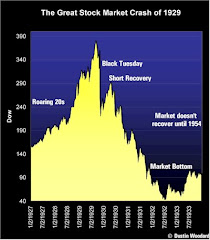
Earlier in the week my Pension Socialism blog touch on the large ownership interests that pension have in our country.
One of the threats that I see is the large pools of capital that are being accumulated and invested by public sector pension plans. They love monopoly or oligopoly type investments. Profits are high with a lack of competition .
The type of investment they like include public infrastructure or utility type companies. Many of these have a very high level of entry because of the capital required to build the systems. Think of the monopoly Bell had to build Canada's phone system.
In the next few years many of these monopolies will be moving into the hand of Canada's public sector pensions.
The Ontario Teachers plan was very eager to get Bell Canada last year. Telecommunication in Canada is a very restricted industry with huge profits for its players. Any encroachment in those industries will affect profitability. The cost of monopoly in Canada
It was interesting to see how the telecommunications industry oligopoly is protecting its interests. A Globe and Mail article cited this information:
Rogers Communications Inc., Canada's biggest wireless company, has asked the federal regulator to conduct intensive public reviews of two new entrants to the marketplace.Rogers, as well as Telus Corp. and BCE Inc.'s Bell Canada, have won third-party status at the CRTC hearings Sept. 23 and 24 to determine Globalive's future. They are arguing that the Toronto-based company, which has received its financial backing from Egyptian telecom giant Orascom Telecom Holding SAE, does not meet foreign ownership and control rules.
And of course cut dramatically into profits. The door must be closed to competition at all costs!
The decision and recommendations on this policy will be made by bureaucrats who happen to be members of a pensions fund that just happens to own major shares in all of Canada's telecommunication companies.
What do you think the decision will be. It is a foregone conclusion.



No comments:
Post a Comment